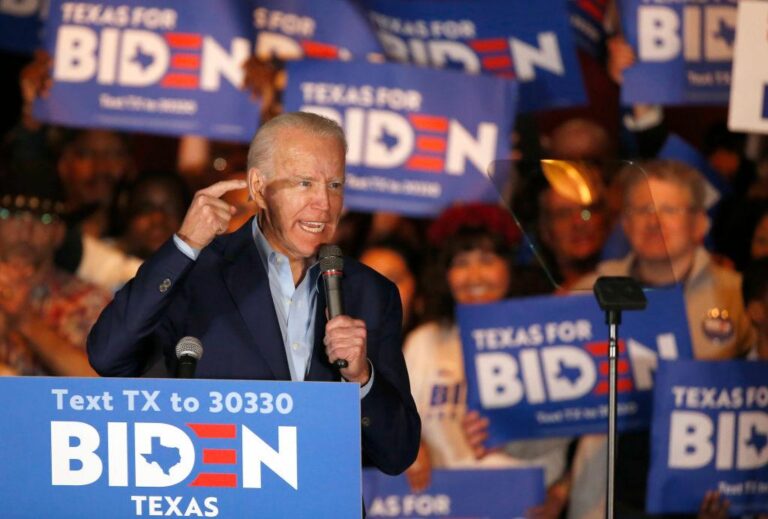Dallas Congressional Seat Sparks Intense Democratic Party Divisions
Internal Conflicts Emerge Within Dallas Democrats Over Johnson’s Successor
The contest to fill the congressional seat vacated by longtime Congresswoman Eddie Bernice Johnson has unveiled significant ideological and strategic disagreements within Dallas’ Democratic ranks. As the district faces demographic shifts and evolving political currents, party insiders and activists are split on the best path forward to preserve the seat’s Democratic stronghold. While some advocate for a pragmatic, centrist candidate to appeal to a broad electorate, others push for a progressive contender who can mobilize younger voters and grassroots movements.
This divergence has led to heated debates over endorsements, campaign narratives, and fundraising strategies. The discord is most apparent among three main groups:
- Established party operatives who support a seasoned moderate with a track record of legislative accomplishments.
- Progressive grassroots activists rallying behind a fresh face championing transformative policies on social justice and environmental reform.
- Community leaders focused on enhancing representation and boosting voter participation in historically marginalized neighborhoods.
| Group | Candidate Profile Favored | Primary Concern |
|---|---|---|
| Party Operatives | Experienced Moderate | Electoral Viability & Proven Leadership |
| Progressive Activists | Innovative Newcomer | Policy Boldness & Grassroots Energy |
| Community Advocates | Inclusive Representative | Equity & Voter Mobilization |
Policy Disagreements Define the Contest to Replace Eddie Bernice Johnson
Although all candidates profess commitment to progressive values, their policy proposals reveal sharp contrasts on key issues shaping Dallas and the nation. Healthcare remains a dividing line, with some contenders pushing for a sweeping Medicare for All system, while others prefer enhancing the Affordable Care Act through incremental reforms. Housing policy also splits the field: advocates of rent control clash with those promoting expanded incentives for affordable housing development.
Climate change strategies further highlight the divide. One faction calls for an aggressive shift to 100% renewable energy by 2030, emphasizing urgent environmental action. Opponents argue for a more balanced transition that safeguards local jobs and industries. Public safety debates mirror this polarization, ranging from calls to defund and restructure police departments to proposals for increased law enforcement funding to ensure community security.
- Healthcare: Medicare for All vs. Strengthening ACA
- Housing: Rent Control vs. Incentivizing Affordable Housing
- Climate Action: Rapid Renewable Energy Shift vs. Gradual Transition
- Public Safety: Police Reform vs. Enhanced Funding
| Issue | Candidate A | Candidate B |
|---|---|---|
| Healthcare | Medicare for All | Expand ACA Coverage |
| Housing | Implement Rent Control | Boost Housing Incentives |
| Climate | 100% Renewables by 2030 | Balanced Energy Policy |
| Public Safety | Reform and Reallocate Police Funds | Increase Police Resources |
How Endorsements and Fundraising Influence Campaign Dynamics
In this fiercely competitive race, endorsements from influential community leaders, organizations, and party officials have become critical indicators of candidate viability. Such backing not only boosts a campaign’s credibility but also helps consolidate volunteer efforts and grassroots enthusiasm. The split endorsements reflect the broader factional divides within Dallas Democrats, often energizing distinct voter blocs and shaping the narrative around each contender’s legitimacy.
Financial resources are equally decisive. Candidates with robust fundraising networks can afford expansive outreach, digital advertising, and high-profile events, all of which are essential in a crowded primary. Metrics such as total funds raised, donor count, and average contribution size provide insight into each campaign’s strength and potential staying power. Below is a summary of fundraising figures among leading candidates, highlighting disparities that could influence the race’s outcome:
| Candidate | Funds Raised (Thousands $) | Donor Count | Average Donation ($) |
|---|---|---|---|
| Jane Smith | 650 | 1,200 | 54 |
| Marcus Lee | 480 | 900 | 53 |
| Ashley Nguyen | 300 | 600 | 50 |
Guidance for Voters Amid a Divided Democratic Primary
Given the fragmented nature of this primary, voters are encouraged to adopt a deliberate and informed approach when selecting their preferred candidate. Comprehensive research into each contender’s policy positions, community involvement, and leadership style is essential beyond relying on endorsements or party labels. Participating in local candidate forums, watching debates, and consulting impartial voter guides can help clarify which candidate aligns best with individual and district priorities.
To assist in evaluating candidates, consider the following criteria:
| Evaluation Factor | Key Considerations |
|---|---|
| Policy Specificity | Clear, actionable plans addressing Dallas’ unique challenges |
| Community Ties | Demonstrated engagement with local organizations and constituents |
| Experience | Proven record in public service, advocacy, or leadership roles |
| Endorsement Diversity | Support from a broad spectrum of groups, not just party insiders |
Engaging in conversations with family, peers, and trusted community figures can also provide valuable perspectives. In a race marked by no clear dominant faction, informed and active voter participation will be crucial in determining who will best represent Dallas on the national stage.
Final Thoughts: What’s at Stake in Dallas’ Congressional Contest
The battle to succeed Eddie Bernice Johnson has laid bare the ideological and strategic tensions within Dallas’ Democratic Party. With endorsements split and voter allegiances fluid, the primary promises to be a defining moment that could alter the city’s political trajectory and influence broader Democratic priorities. As candidates strive to honor Johnson’s legacy while presenting their own visions, the outcome will resonate well beyond Dallas, shaping the future of representation and policy advocacy in the region.






